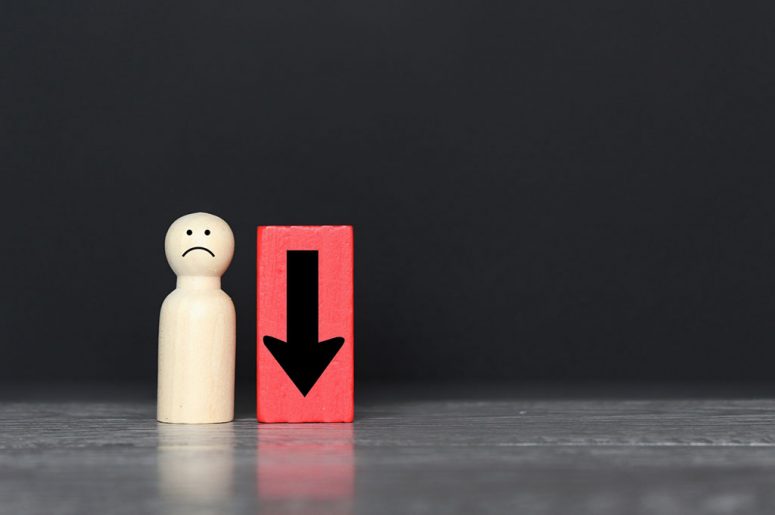
Courtesy Shutterstock
Statistically speaking, the world has drastically improved in recent centuries. We live in a measurable (albeit imperfect) Golden Age—never has there been a better time to be born, regardless of gender, race, religion, economic class, and 99% of nationalities.
And yet, most people think morality is in rapid decline, according to new research by Adam Mastroianni. After studying half a million humans, Mastroianni cites two causes for this: biased exposure and biased memory. The first is how people pay more attention to negative news, which journalism disproportionately publishes in order to increase advertising revenue. The second means the outrages of yesterday don’t seem so outrageous today (even though they are).
In short, media bias and our brains have tricked us into thinking everything is worse. As Mastroianni writes, “If you think that morality is declining, then you must think that some switch has been flipped in society, causing it to produce worse humans. No doubt you would want to un-flip that switch, whatever you think it is: smash the social media companies! Kill all the politicians! Ban the bad books! None of that is going to reverse the trend, because the trend doesn’t exist. It’s like activating the sprinkler system in a building that’s not on fire.”
This realization is both refreshing and frightening. In the meantime, let’s not “fix” anything until we verify that it’s actually broken.
See also: Does accepting (or celebrating) social progress hinder future progress?

Courtesy Shutterstock
I was recently talking to an ultra-liberal friend who admitted that today is a better time to be born than any other time in history, regardless of race, gender, and let’s say 99% of nationalities. While the world is far from perfect, it is a better place for the greatest number of people. That includes higher life expectancies, education, and literacy rates, and remarkably less death, disease, poverty, war, crime, dictators, and injustices.
Nevertheless, this same friend expressed fear that acknowledging said progress might encourage conservative society to stop making progress. I argued that most conservatives have made social progress, albeit slower than liberals, since forever (especially since the industrial revelation). Furthermore, there’s no evidence suggesting that conservatives will suddenly stop once a tolerable threshold of social equality has been reached. And yet I suspect this liberal fear exists in more than just my friend.
I don’t know the exact number, but I do know many outspoken liberals feel the need to qualify any acceptant that the world has gotten better. They almost always couch it with, “Yeah, but we still have a long way to go!” I sense many of them share this fear that by acknowledging our social progress, we’ll suddenly stop perfecting the other flawed areas of social inequality.
To get to the bottom of what I believe is an unfounded fear, I interviewed several people on the subject. This is what I learned. Continue reading…
Many years ago, I read a mind-bending book by Bill Bryson. But I did so a full decade after the best-selling author first wrote it. Surprisingly, I later learned that the book didn’t get as much coverage as his earlier travel books. “I gotta share this,” I said to myself. So I reached out to several newspaper editors with whom I worked with—none of which had covered the book—about doing a retrospective review. Their collective reply, “Sorry, we don’t review old books.”
In other words, modern journalism only touches recent “news,” however you define that. In art’s case, that usually means weeks or months, and typically never more than a few months old. Journalism, you see, is built on helping readers process the recent world—in many cases without context to our past. It’s almost as if they’re saying, “You’re on your own for anything good that’s older than a year, but we’ll help you find the good stuff coming out of the firehose right now.”
That’s negligent at best, narrow-minded at worst.
As journalists, how can we inform society if we fail to critique some of our “greatest hits” from the past? The answer is we can’t. While recent happenings have always been the focus of “news,” it shouldn’t come at the expense of celebrating, elevating, or criticizing some of humanity’s most viral ideas and works, especially for newer generations who weren’t around when that once important news dropped off the feed.
There must be a better way. While it’s impossible for news to cover everything that’s ever happened, that doesn’t mean it shouldn’t revisit the more profound ideas that are still relevant.
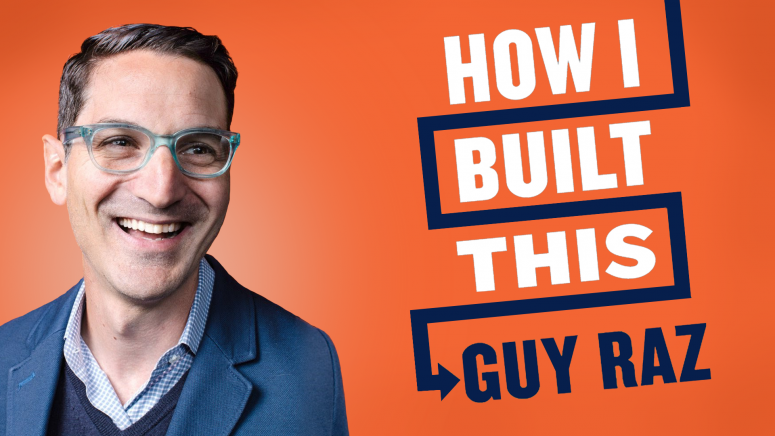
I recently binged on several dozen episodes of How I built this over a few long flights and a couple long nights. These are what I believe to be the most insightful, heartfelt, and inspiring stories:
- Jonah Peretti (new media mogul)
- Blake Mycoskie (three-time entrepreneur)
- Barbara Corcoran (real estate mogul)
- Sarah Blakely (corset underwear inventor)
- Jimmy Wales (encyclopedia savant)
- Jack Conte (artistic crowd-funder)
- Tony Hsieh (online shoe kingpin)
- Rick Steves (travel magnet)
- Vlad Tenev (Wall Street disrupter)
- Ben & Jerry (modern ice cream pioneers)
Honorable mention: Joe Gebbia (home share inventor)
Many years ago, I subscribed to over 150 news feeds. I was a hard news journalist (aka tech blogger) at the time and believed I needed to monitor that many sources to perform my job.
 After realizing how much time I wasted on redundant news, I reduced that number to 30. A few years later, I cut my consumption again to just six daily outlets, before eventually settling on four per day for the last several years (one national outlet, one state, one city, and one long-read curator).
After realizing how much time I wasted on redundant news, I reduced that number to 30. A few years later, I cut my consumption again to just six daily outlets, before eventually settling on four per day for the last several years (one national outlet, one state, one city, and one long-read curator).
Since pandemic started, however, I noticed a disappointing trend: even the trustworthy sources I still read seemingly couldn’t look past the moving target that is coronavirus. They had become temporarily myopic, if not overly doomsday-ish, and were incapable of telling the whole truth (i.e. the world is getting much better).
In light of this, I cut my daily news in January to just two sources per weekday, one of which is delivered straight to my inbox. That source is the Need2Know newsletter, which summarizes what their editors deem as the 10 most important news updates every weekday. In just five minutes, I get smart summaries with a few smile-inducing comments from the Associated Press, New York Times, USA Today, and other specialist publications. (The other daily source I still follow is Digg’s Long Reads for in-depth reporting.)
After cutting my news to just two daily sources (note: I no longer read news on weekends as Need2Know alerts me on Monday of anything noteworthy), I went from spending on hour on news each day to no more than five minutes, minus the long reads I still reach for on my lunch break.
Like all previous instances that I dramatically reduced my news intake, I suspect I’ll be just fine this time, if not even prosper with the added hour the act afforded me.
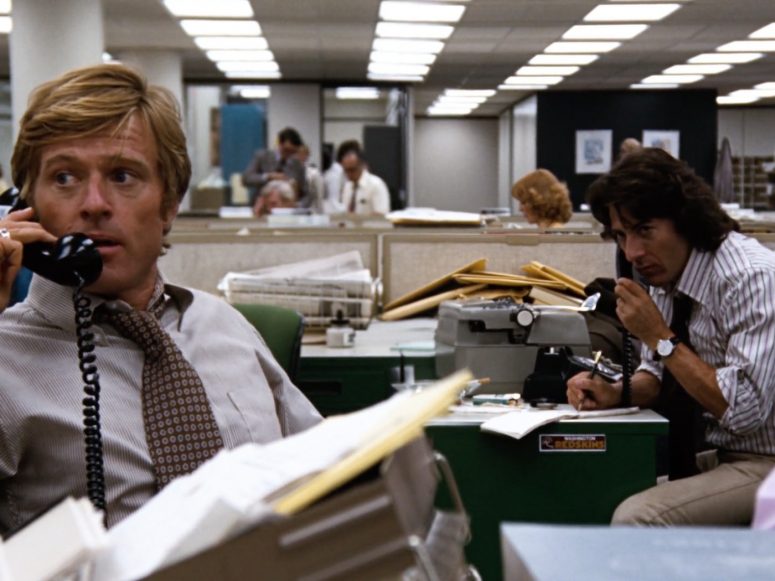
As a working, independent journalist for over 15 years now, I can attest that there is, in fact, a liberal bias in the media. In fact, 37% of journalists identify as liberal, while just 7% as conservative, according to the Washington Post. The rest, myself included, are independent.
Having written for dozens of moderate outlets such as CNN and even Fox News and MSNBC—the most extreme publications for American news bias—I also have a lot of insight into why that is. Here’s why. Continue reading…

Courtesy Shutterstock
I start many of my conversations with the following: “I read an interesting article recently…” This week my twelve-year old daughter asked, “Dad, where do you read all these articles you’re talking about?”
Good question. In essence, she was asking how I stay informed and uncover a lot of interesting information and in-depth news. This is what I told her:
- I read three daily newspapers. They are: USA Today (for national news) and KSL and Daily Herald (for local news). I only scan the homepages and click on headlines that interest me. I sometimes skip weekends and weekdays on extra busy days. All told, I might spend 10-20 minutes reading these. I rarely read politics.
- I read Digg’s daily long reads. These are editor picks of some of the best long-form journalism and magazine articles on the web, from a variety of outlets. I stockpile them in several open tabs on my phone and read them throughout the week, spending a few hours doing so.
- I subscribe to weekly long read newsletters. They are the Weekly Top 5 Longreads and Longform’s Pick of The Week. Like Digg Longreads, I stockpile these and spend a few hours reading them each week.
On top of that, I read about 8-10 books a year, mostly non-fiction and biographies.
Fun fact: I used to spend a lot more time staying informed and reading dozens of websites and online newspapers in my twenties but have found since my thirties that the added distraction didn’t justify the amount of time I was spending. Since then, I’ve been a lot more productive and happy while still staying just as informed on the low-caloric, but nutrient-rich diet of the above.
Hope that helps.

Credit: Blake Snow
My wife and I believe the world is inherently good and we want to indoctrinate our children to think the same. Not by ignoring society’s seedy underbelly. But with measurable evidence such as this that overwhelmingly proves the world is getting better and better.
To that end, my wife shared the following quote with our children and I over breakfast recently: “Feed your faith and your fear will starve.” In other words, people who are afraid are usually consumed by doubt.
But in my experience, we can replace that fear and doubt with hope and love by doing the following: Continue reading…
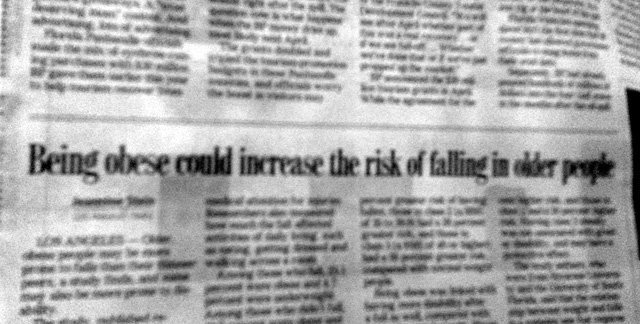
As seen in my local newspaper (which I re-upped, btw). Yes, the story, based on a university study, is as dumb as it’s headlined. In sum: Human body wasn’t meant to balance nor support excessive pounds for prolonged periods of time. May fall as a result. Go figure.

Newspapers are outdated, irrelevant, and useless technology.
Or are they?
I decided to find out first-hand by ordering a daily subscription two weeks ago. After 14 issues, here are 10 surprising things I learned so far: Continue reading…
2 Muslims travel 13,000 miles across America, find an embracing nation
An excerpt: “After 13,000 miles, I think that America still exists, and I’m happy to know that it does,” said Tariq, a 23-year-old American of Pakistani descent. “It’s really made America feel like home to me in a way that I’ve never felt before. The America that we think about [as immigrants] is still actually there. I’ve seen it! And I’m seeing it still.”

When I first discovered RSS, I went crazy. I subscribed to more than 400 feeds out one time. Ridiculous. And even though I’ve since reduced that number to a mere 40, I’m still inundated with repurposed, rehashed, and regurgitated information. Why can’t someone just point me to the good stuff?
Actually, someone can. At least as it pertains to business and technology headlines. They’re called Smart Brief. They claim to “read everything” so “you get what matters.” And after a week of subscribing to their various newsletters, I can honestly say they deliver on their promise.
As a result, I’ve unsubscribed to even more feeds. Now if only Smart Brief covered more consumer areas, I might be able to relegate my Google Reader to personal feeds only.
Whoever said video games are recession proof is a turd. I know because my GamePro invoicing and contributions were drastically cut two weeks ago as the outlet readies for the great advertising scare and depression apocalypse of 2009. It was the right thing for the company to do in an effort to stay lean, even if freelancers like myself and lowly employees suffer as a result.
In any case, I will no longer serve as news editor for the publication, something I’ve greatly enjoyed since taking the helm in July 2007. Instead, I will remain an editor at large, helping to expand the coverage of GamePro’s subsidiary sites. I will continue responding to “letters to the editor” along with the occasional game review and preview, but for the time being, I will no longer be writing news.
During my tenure as news editor, I wrote more than 1,000 news articles (a partial list which can be found here) and oversaw 2,000 published works. I also scooped some original stories, got cited in CNN, planned coverage for a team of three reporters, and edited lots of copy. For any interested, click to your hearts content, and let me know if any media outlets are looking for wordsmiths (wink, wink).
Though imperfect, The Associated Press is increasingly becoming one of the few U.S. media agencies that can be trusted for reliable news. After reading their thorough and objective report on the the South Ossetia conflict, I learned the following:
- Two areas of Georgia have been operating independently (though unrecognized internationally) since the early 90s: Abkhazia and South Ossetia.
- Georgia last week invaded South Ossetia without warning in an effort to retake the region, citing previous provocation from South Ossetian militants.
- Russia, out of nowhere, came to South Ossetia’s rescue, then starting invading other (unaffected) areas of Georgia without explanation or reason.
- President Bush criticized Russia for the “disproportionate” military response “outside of South Ossetia,” suggesting approval with Russian aide in affected areas, but disapproval with Russian aggression in unaffected areas, obviously.
Something smells fishy — seems like everyone, including Georgia, Russia, and maybe even the U.S. are more concerned with those ginormous oil pipes in the war-torn country than the security of little old South Ossetia.
UPDATE: For additional commentary, be sure to read the comments on Digg surrounding this story. If American, you’ll uncontrollably laugh at how brutally honest some Diggers are, before blushing upon realizing how embarrassed you should be.
 “You can find a link to the report on our website.”
“You can find a link to the report on our website.”
That’s the same line every local TV news station in the nation uses to artificially inflate their website traffic. What they are really saying is: “We have no idea what we’re doing online, and our shortsighted logic tells us that we should funnel and horde all valuable web links on our site. But our website is so messy you won’t even be able to find the desired link.
“Furthermore, we’re pretentious and have no understanding that providing a courteous service to our audience (like saying, “For more information, visit WeLikeSharing.com”) is enough reason alone to keep them coming back — so we force the issue.”
I rarely if ever watch local news. But this sort of amateur move is enough to make me never want to watch again. Lame.
 Thanks to Good Morning America, we now know that the popular Airborne cold remedy is nothing more than an “extraordinarily expensive Vitamin C delivery system.” A placebo.
Thanks to Good Morning America, we now know that the popular Airborne cold remedy is nothing more than an “extraordinarily expensive Vitamin C delivery system.” A placebo.
The Alka-Seltzer-like mixture originally claimed to be the “miracle cold buster” that could “get rid of most colds in 1 hour.” The company has since watered down those claims, obviously to avoid further litigation.
Continue reading…
Blake Snow examines gaming benevolence and creative development twice monthly. The color of next-gen is bright.
In 2007, a fictional food critic by the name of Antone Ego aptly described mass media and its audience when he wrote: “We thrive on negative criticism, which is fun to write and to read.”
Ego’s definition couldn’t have been wiser. Indeed, positive news has long since taken a backseat to negative reporting, with the former often compressed to a 20-second closing spot in a 30-minute telecast.
The same is true of videogames, if not by more, which have long been vilified and blamed for idleness, poor grades, insensitivity and random acts of violence by the mainstream media. Interestingly, even the gaming press has become more grumpy in recent years, adding drama where there is none to be found, discouraging industry growth and change, and forgetting the playful nature of videogames altogether.
Continue reading at Crispy Gamer…
Sadie woke up early today. After getting up with her and dozing off on the couch, she unfortunately decided to turn on the Today Show on NBC. I don’t watch morning shows, and now I know why. The programming is pathetic — it’s like a prolonged advertisement filled with periodic non-news and weather updates every 10 minutes. Just horrible…
Which made me wonder: Will morning shows continue to air once the baby-boomer generation passes on? Who else is watching this dross?



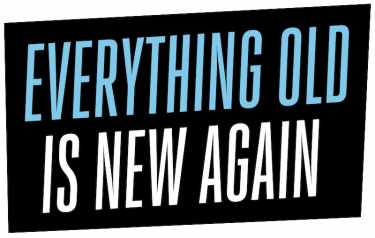








 “You can find a link to the report on our website.”
“You can find a link to the report on our website.” Thanks to
Thanks to